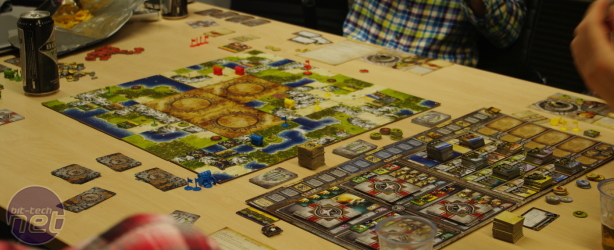
What Video Games Can Learn From Board Games
One way video games can learn from board games then, is to prise apart the creation of the polygonal world the player inhabits and the narrative drive that pushes them into and around that world - that designer and developer should be understood differently. But this leads us to other questions about the different ways the two types of gaming deal with narrative.'Video games express something which might be called "narrative of game" — the players are told a story, and can... inhabit the world of that story, but the narrative requires a script 'hard-coded' into the game itself, and which creates a narrative told mechanistically,' says Brett J. Gilbert, a game designer and consultant.
'Board games have the potential to express something else, which might be called "narrative of play" — now the players must tell the story for themselves. Their immersion in that world is lessened, but is less necessary, and the narrative emerges from the game — the game mechanisms are the engine which can deliver that story, but they do not prescribe it so definitively.'
What Gilbert describes as “the narrative of play” is something that all board gamers understand. It isn't so much the story of the game, as the stories that gamers create around their playing experience. It's how you all rolled terribly in your last sessio;, it's the ridiculous rescue attempt that ended with one of your players flat on his face; the spilt drink or the hilarious, unintentional innuendo. It's one of you deciding to go for broke or disobey the team direction for some hidden goal.
'A board game's "narrative of play" is not a scripted, pre-determined path, it is the emergent story told by the players about their own experiences,' says Brett. 'Many of the stories are outside of the 'game world', and are about how, where, when and why the players have played.'
This type of personal story, which exists alongside the tale told by the game itself, is only possible because of the communal nature of board games. Video games, in spite of their push towards multiplayer, are still essentially single player experiences. James Ernest again; 'To enjoy a tabletop game requires participation in a social contract: behaving well, being cordial, losing and winning with grace, and maintaining personal relationships. You don’t get a lot of that online, even from your friends.'
It's these group narratives that make board gaming so special, and that the video game industry needs to try and capture if it wants its story telling to mature.
As Brett J. Gilbert puts it; 'right now board games invite, whereas video games only permit.'

MSI MPG Velox 100R Chassis Review
October 14 2021 | 15:04











Want to comment? Please log in.